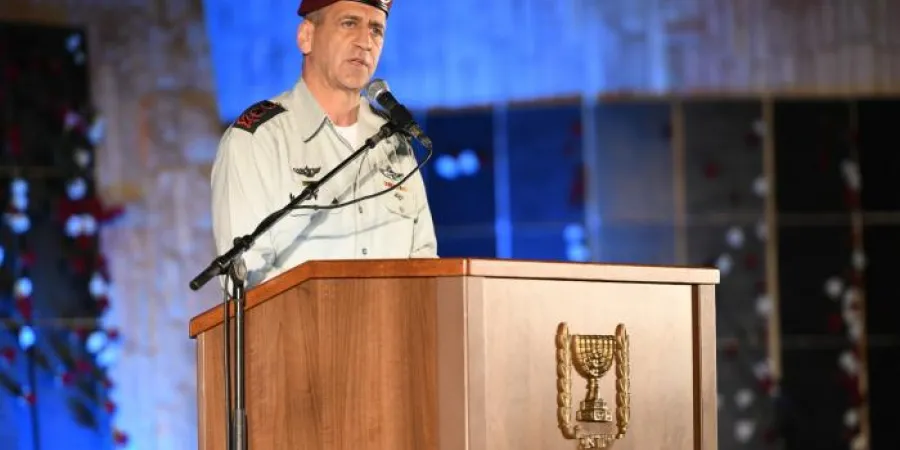As was expected, IDF to Receive Budget Increase
The IDF will be given 2 billion extra shekels over 2 years. What will the military do with this money? That remains to be seen
Ami Rojkes Dombe
| 21/01/2020
The portion of Israel’s budget that goes toward security reached the sum of 100 Billion shekels last year, including foreign aid. This includes funds for the Mossad, ISA (Shin Bet), and all Ministry of Defense (MoD) expenses. The IDF, however, takes the biggest slice. On average, about 5 percent of Israeli GNP each year goes to pay for defense. Israel’s GNP is rising, and the security establishment demands more funds as well. However, the Treasury Ministry sees the effect these demands have on budget deficits, and isn’t always eager to comply.
This time, the discussions regarding the increased IDF budget are facing a new twist: there is currently no elected government (only a transitional one), and thus no officially approved budget for 2020. The lack of a budget means the IDF long-term financial plan, named “Tnufa” (“momentum” in Hebrew) won’t be funded. So the defense establishment, including the military, is running without a structured budget, with expenses that are expected to be about 8 billion shekels a month. Now it seems that the Treasury and IDF have agreed upon a 2 billion shekel addition over two years for the implementation of Tnufa. The problem, according to Israeli business newspaper Globes, is that neither side knows where the money will come from.
What is IDF Chief of Staff Aviv Kochavi seeking to do with this extra money? Unknown. Some assume it’s meant to strengthen the IDF missile defense capabilities. Another estimate says it’s for new offensive missile systems.
If these numbers are accurate, this addition to the budget is a small one, especially since Prime Minister Benjamin Netanyahu reportedly wanted to give the IDF an increase in funds that would raise the security sector’s budget from 5% to 6% of GNP. Even so, the question of where the money will go has yet to be answered. Considering the words of former IDF ombudsman Major General (ret.) Yitzhak Brick regarding the poor condition of the IDF, as well as recent severe reports regarding the readiness of reservist divisions – it seems the defense budget and the IDF’s preparedness for war may be going in opposite directions.
The IDF will be given 2 billion extra shekels over 2 years. What will the military do with this money? That remains to be seen
The portion of Israel’s budget that goes toward security reached the sum of 100 Billion shekels last year, including foreign aid. This includes funds for the Mossad, ISA (Shin Bet), and all Ministry of Defense (MoD) expenses. The IDF, however, takes the biggest slice. On average, about 5 percent of Israeli GNP each year goes to pay for defense. Israel’s GNP is rising, and the security establishment demands more funds as well. However, the Treasury Ministry sees the effect these demands have on budget deficits, and isn’t always eager to comply.
This time, the discussions regarding the increased IDF budget are facing a new twist: there is currently no elected government (only a transitional one), and thus no officially approved budget for 2020. The lack of a budget means the IDF long-term financial plan, named “Tnufa” (“momentum” in Hebrew) won’t be funded. So the defense establishment, including the military, is running without a structured budget, with expenses that are expected to be about 8 billion shekels a month. Now it seems that the Treasury and IDF have agreed upon a 2 billion shekel addition over two years for the implementation of Tnufa. The problem, according to Israeli business newspaper Globes, is that neither side knows where the money will come from.
What is IDF Chief of Staff Aviv Kochavi seeking to do with this extra money? Unknown. Some assume it’s meant to strengthen the IDF missile defense capabilities. Another estimate says it’s for new offensive missile systems.
If these numbers are accurate, this addition to the budget is a small one, especially since Prime Minister Benjamin Netanyahu reportedly wanted to give the IDF an increase in funds that would raise the security sector’s budget from 5% to 6% of GNP. Even so, the question of where the money will go has yet to be answered. Considering the words of former IDF ombudsman Major General (ret.) Yitzhak Brick regarding the poor condition of the IDF, as well as recent severe reports regarding the readiness of reservist divisions – it seems the defense budget and the IDF’s preparedness for war may be going in opposite directions.



